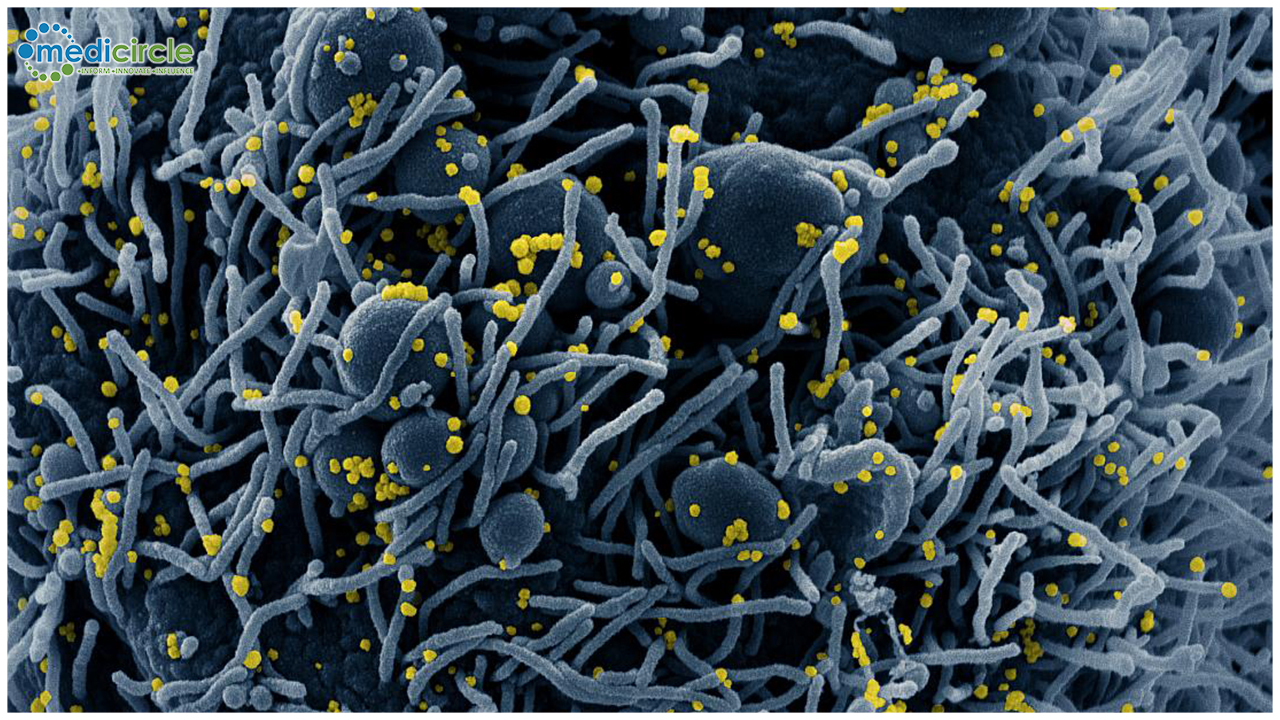A new study has begun recruiting at the National Institutes of Health in Bethesda, Maryland, to determine how many adults in the United States without a confirmed history of infection with SARS-CoV-2, the virus that causes coronavirus disease 2019 (COVID-19), have antibodies to the virus. The presence of antibodies in the blood indicates a prior infection. In this “serosurvey,” researchers will collect and analyze blood samples from as many as 10,000 volunteers to provide critical data for epidemiological models. The results will help illuminate the extent to which the novel coronavirus has spread undetected in the United States and provide insights into which communities and populations are most affected.
The study will be conducted by researchers at the National Institute of Allergy and Infectious Diseases (NIAID) and the National Institute of Biomedical Imaging and Bioengineering (NIBIB), with additional support from the National Center for Advancing Translational Sciences (NCATS) and the National Cancer Institute (NCI), all parts of NIH.
“This study will give us a clearer picture of the true magnitude of the COVID-19 pandemic in the United States by telling us how many people in different communities have been infected without knowing it, because they had a very mild, undocumented illness or did not access testing while they were sick,” said Anthony S. Fauci, M.D., NIAID director. “These crucial data will help us measure the impact of our public health efforts now and guide our COVID-19 response moving forward.”
Investigators will test participants’ blood samples for the presence of SARS-CoV-2 antibodies , proteins the immune system produces to fight a specific infectious agent. A positive test result indicates previous infection. To date, reporting of U.S. cases of COVID-19 has mostly relied on molecular tests that determine the presence of the virus in a person’s airways using a noninvasive cotton swab. While these cotton swab-based tests rapidly and effectively identify active infection, they do not determine whether a person was previously infected with SARS-CoV-2 and recovered.
“An antibody test is looking back into the immune system’s history with a rearview mirror,” said Matthew J. Memoli, M.D., M.S., principal investigator of the study and director of NIAID’s Laboratory of Infectious Diseases Clinical Studies Unit. “By analyzing an individual’s blood, we can determine if that person has encountered SARS-CoV-2 previously.”
Investigators will analyze blood samples for two types of antibodies, anti-SARS-CoV-2 S protein IgG and IgM, using an ELISA (enzyme-linked immunosorbent assay) developed by researchers at NIAID and NIBIB. In blood samples found to contain antibodies against SARS-CoV-2, researchers may perform additional tests to evaluate the volunteers’ immune responses to the virus. These data may provide insight as to why these cases were less severe than those that lead to hospitalization.
Healthy volunteers over the age of 18 from anywhere in the United States can participate and will be asked to consent to enrollment over the telephone. Individuals with a confirmed history of COVID-19 or current symptoms consistent with COVID-19 are not eligible to participate.
After enrollment, study participants will attend a virtual clinic visit, complete a health assessment questionnaire and provide basic demographic information—including race, ethnicity, sex, age and occupation—before submitting samples in one of two ways. Participants working at the NIH Bethesda campus will have blood drawn at the NIH Clinical Center. Other volunteers will participate in at-home blood sampling. Neoteryx, a medical device firm based in Torrance, California, will supply at-home blood collection kits. Researchers will ship each study participant a Mitra®Home Blood Collection Kit and provide detailed instructions on collecting a microsample of blood and mailing it back for future analysis in the laboratory.
“Researchers have considerable experience using these at-home blood collection kits to track the spread of other infectious diseases like influenza, and this method is safe, effective and easy-to-use,” said Kaitlyn Sadtler, Ph.D., study lead for laboratory testing and chief of NIBIB’s Section for Immunoengineering. “With a small finger-pick, volunteers can help scientists fight COVID-19 from their homes.”

 This study will give a clearer picture of the true magnitude of the COVID-19 pandemic in the United States by telling how many people in different communities have been infected without knowing it
This study will give a clearer picture of the true magnitude of the COVID-19 pandemic in the United States by telling how many people in different communities have been infected without knowing it










.jpeg)

.jpg)


.jpeg)
.jpeg)


.jpeg)
.jpg)





.jpeg)


